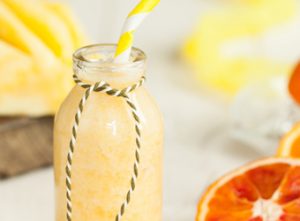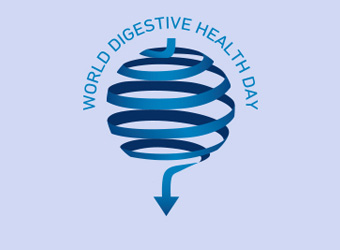World Digestive Health Day
World Digestive Health Day, which is celebrated each year on May 29th, was set up by the World Gastroenterology Organisation and the World Gastroenterology Foundation, to encourage and spread awareness of digestive health. This year, there is a special focus on the “Gut Microbiome: A global perspective”, to increase awareness of the role the gut microbiome has for human health.
Gut Microbiota
The community of microbes that live in our digestive tract, called our ‘gut microbiota’, and their genes, which make up our ‘gut microbiome’, is at the centre of many research projects, as experts examine their role in our health.
Here we share interesting facts about these microscopic organisms…
Interesting facts
- There are trillions of bacteria living in and on the human body, but most of them live in the colon and belong to over 100 different species.
- The gut microbiota has a number of important functions;
- They breakdown undigestible food which we are unable to digest ourselves
- They can synthesise certain vitamins and help with the absorption of nutrients
- They are an important line of defence – they can prevent the growth of harmful microbes and help with the development and homeostasis of the immune system
- There isn’t a single “healthy” microbiota – everyone has their own unique community of microbes. Diversity, resilience, and stability are characteristics which have been identified to indicate a healthier microbiota. These suggest having more types and number of microbes is beneficial, and can help prevent significant changes occurring when challenged, such as during illness or when taking medications.
- People with certain health conditions, such as irritable bowel syndrome, have a different gut microbiota compared to ‘healthy’ people – although in many cases it is not known whether this is a cause of the condition or a consequence.
- The gut microbiota can be influenced by a variety of factors, but one of the most important modifiable factors is our diet. What we eat can have a profound effect on which microbes are most abundant in the gut. Eating a diet high in fibre, from many different plant sources, can help increase diversity. As well, foods that contain live microbes, either in the form of fermented food or probiotics, can help introduce more microbes into our gut.
Mighty microbes
They may be microscopic, but our microbes are mighty. Each day researchers are investigating the powerful role that they have in human health.
Love Your Gut inspiration – recipes
A simple step you can take is to feed them a variety of foods that are full of fibre – check out some of our gut loving recipes here.


To find out more about World Digestive Health Day visit here.
Our Love Your Gut Partners
Find out more about our Love Your Gut Partners in the UK and Republic of Ireland.
References:
Sender R et al. (2016) PLoS Biology 14(8):e1002533.
Qin J et al. (2010) Nature 4;464(7285):59-65
www.hcp.yakult.co.uk/gut-health/gut-microbiota Accessed: 21.05.2020
Lozupone C et al. (2012) Nature 489(7415): 220-230
Vich Vila A et al. (2018) Sci Transl Med 10(472): eaap8914

